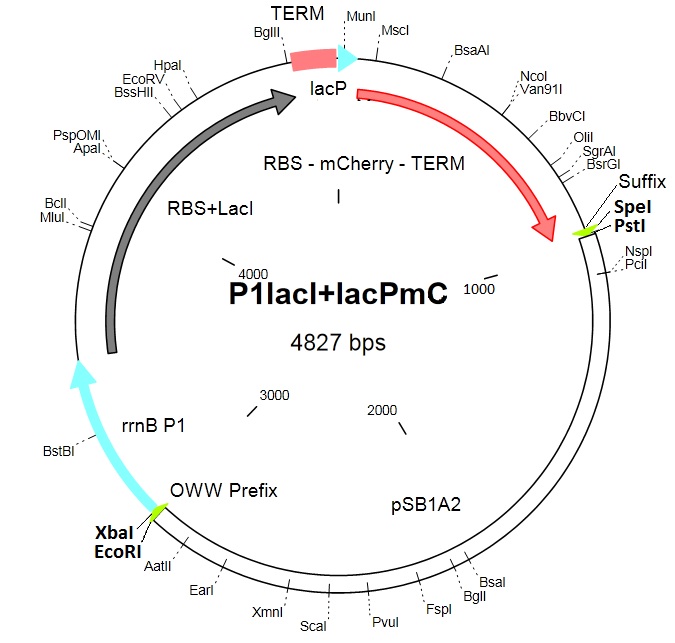Team:NTNU Trondheim/LacI+pLac+mCherry
From 2011.igem.org
(→Stress sensor precursor (LacI+pLac+mCherry)) |
(→Stress sensor precursor (LacI+pLac+mCherry)) |
||
| Line 30: | Line 30: | ||
|} | |} | ||
| + | |||
| + | [[File:construct_map_1807.jpg|thumb|Plasmid map of the complete construct. Promoters are shown in blue, and genes as inside arrows. Only single restriction sites are shown.]] | ||
The composite biobrick has a total length of 2153 bp, and is located in the plasmid pSB1A2. | The composite biobrick has a total length of 2153 bp, and is located in the plasmid pSB1A2. | ||
Revision as of 11:48, 26 August 2011

Stress sensor precursor (LacI+pLac+mCherry)
This is our system without the rrnB P1-promotor. Because this construct lacks a downregulated promotor in front of it, LacI will not be syntethized, and in response, pLac will not be downregulated of LacI. Since pLac is not downregulated, mCherry is going to be present whether the cells are stressed or not. Our experiments indicate that the stress sensor precursor is put together the right way. The stress sensor precursor is made from the following biobricks:
| Biobrick | Part number |
|---|---|
| LacI with RBS | BBa_J24679 |
| Terminator | BBa_B0015 |
| pLac | BBa_R0011 |
| mCherry with RBS and terminator | BBa_J06702 |
The composite biobrick has a total length of 2153 bp, and is located in the plasmid pSB1A2.
This construct could in theory be used for any kind of biosensor. The only thing needed is a promotor that gets downregulated directly or indirectly by the conditions one would want to detect.
 "
"






